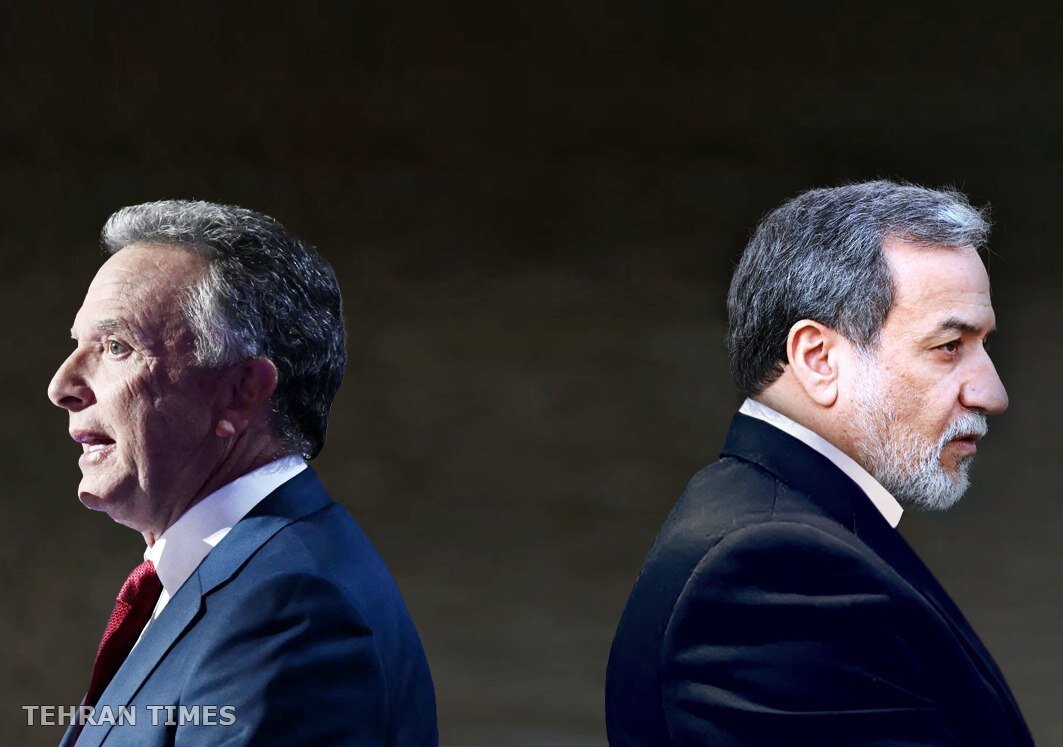Saturday test for US
Iran to evaluate Washington's true intentions during indirect Oman talks

TEHRAN – Iran’s Foreign Minister Abbas Araghchi is slated to visit Oman for indirect talks with Washington, offering U.S. President Donald Trump a chance to give fresh life to the nuclear deal he unraveled in 2018.
Speaking to Iran's national TV on the sidelines of an official trip to Algeria, Araghchi said the upcoming indirect negotiations could eventually lead to an agreement, contingent upon Washington demonstrating good will and seriousness. "Currently, we prefer that negotiations take place indirectly, and we have no plans to change this approach," the top diplomat stated, adding, "It should be clearly stated: the ball is in America's court. If there is a serious will, the path to an agreement is clear."
The new round of discussions follows Trump's dismantling of the Joint Comprehensive Plan of Action (JCPOA), a 2015 deal two years in the making that limited Tehran’s nuclear program in exchange for sanctions relief. After withdrawing from the deal in 2018, Trump reinstated and intensified sanctions, arguing the JCPOA was insufficient to prevent Iran from developing nuclear weapons. His Secretary of State at the time also demanded that the country curtail its missile and drone program and sever ties with regional Resistance groups.
Trump's actions during his first term, which he termed a "maximum pressure campaign," took a heavy toll on Iran's economy and the livelihoods of its citizens. However, the campaign fell short of impacting Iran's nuclear, military, or regional activities. Over the past few years, Tehran has achieved unprecedented progress in its nuclear program, unveiled new state-of-the-art weaponry, and further deepened its commitment to supporting allied Resistance forces in West Asia.
Since returning to the White House in January, the U.S. President has pressured Iran to negotiate a new deal, using the threat of military force. Iranian officials have reacted strongly, citing a lack of trust in Washington based on past dealings and warning of a severe response to any aggression against their interests.
While Tehran agreed to engage in indirect talks after Trump sent a letter to Leader of the Islamic Revolution Ayatollah Seyyed Ali Khamenei last month, sources speaking to the Tehran Times indicate it will strictly limit these discussions to nuclear issues.
“We are fully confident that our [nuclear] program is peaceful. Thus, we have no issues with building trust unless a limitation contrary to national interests is imposed on us,” Araghchi said while in Algeria. “The sanctions that have been unjustly imposed on Iran based on baseless accusations must be removed. This issue is our main objective in the negotiations.”
Iran was adhering to its commitments under the JCPOA when Washington unilaterally abandoned the agreement. It began to scale back on some of its commitments in 2020 after it became clear that European signatories to the deal would not be able to take the sting out of U.S. sanctions. Despite the acceleration of its nuclear program, the International Atomic Energy Agency (IAEA) has confirmed that Tehran has yet to move towards developing nukes.
Prospects for a new agreement remain dim unless the U.S. faces up to the fact that it can't simply dictate terms to Iran. To get a deal, it must offer real concessions and respect the boundaries Tehran has clearly established. The West Asian country has repeatedly stated that demands concerning its military capabilities or alliances are a complete nonstarter.
In an opinion piece published by The Washington Post on Tuesday, Araghchi said the U.S. must understand that military action against Iran is not an option either. “To move forward today, we first need to agree that there can be no ‘military option,’ let alone a 'military solution.’” The official noted that any attack on Iran would endanger the lives of thousands of American soldiers, dump trillions of taxpayer dollars, and have “catastrophic” consequences for the entire region.
The U.S. seems to have left some of its intransigence for now, given that it yielded to Iran's requests for indirect negotiations and Omani mediation. Trump had initially sought direct talks and offered the UAE as a mediator, delivering his letter to Iran’s Leader via an Emirati diplomat.
But this apparent swerve is not guaranteed to chart a new path, as evidenced by Trump's recent attempt to distort the nature of the upcoming negotiations. During a Monday meeting with Israeli Prime Minister Benjamin Netanyahu, he claimed the talks would be held directly between Iran and the United States – a lie widely interpreted as a continuation of Washington's efforts to sow discord within Iran and portray the U.S. as the proactive "initiator”. The president previously publicized his letter to Iran, before it had even been delivered.
Leave a Comment